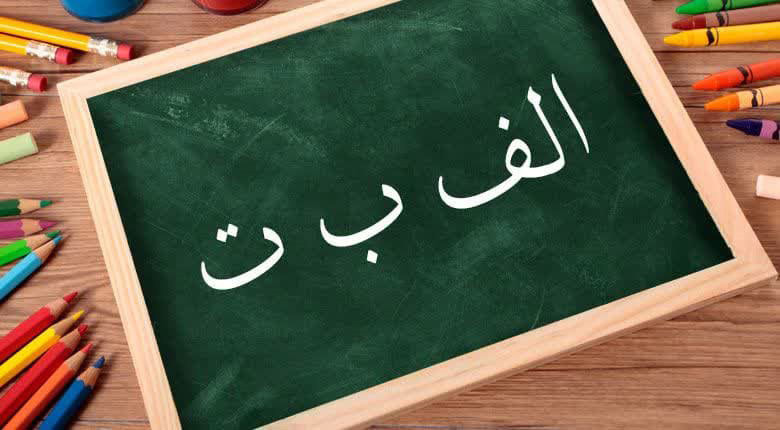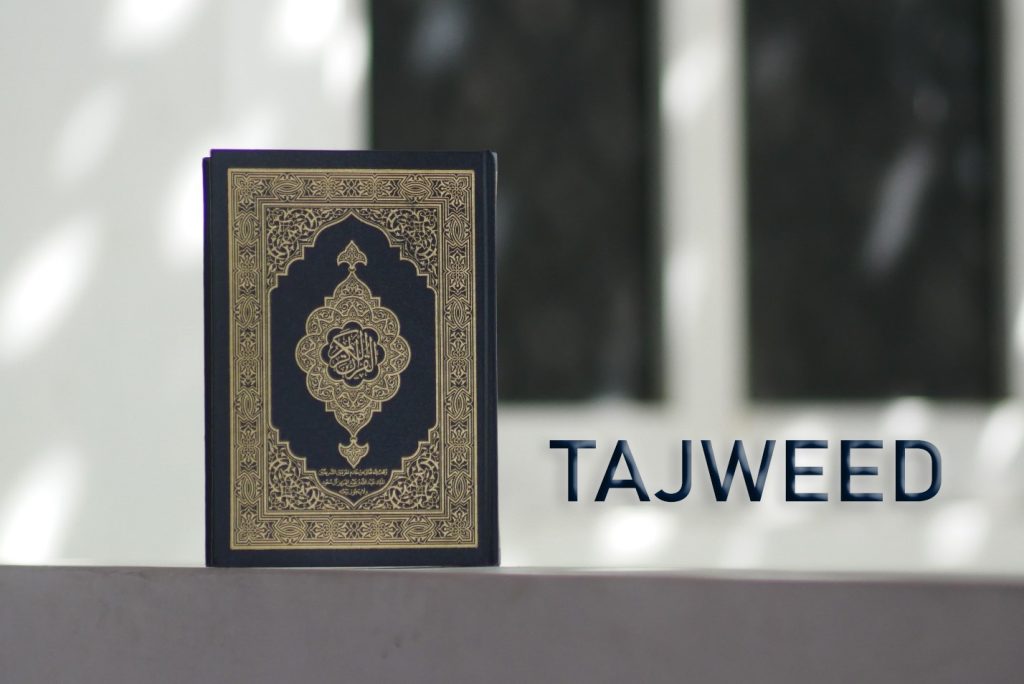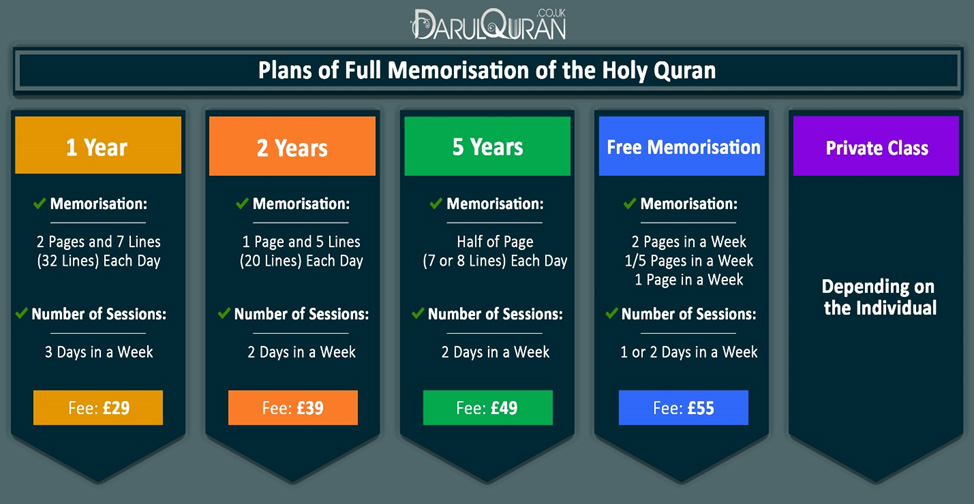The Quran is the holy book of Islam, believed to be the word of God revealed to the Prophet Muhammad through the angel Gabriel. It contains 114 chapters or Surahs, composed of verses or Ayahs, and is regarded as the final and complete revelation of God’s message to humanity. Muslims consider the Quran to be a source of guidance, wisdom, and inspiration, providing a blueprint for living a fulfilling and righteous life. It is a revered text that holds a central place in Islamic faith and practice, providing comfort and solace in difficult times and serving as an integral part of Islamic rituals and traditions. In essence, the Quran is the foundation of Muslim identity and spirituality.
Learning the Quran is a profound journey that enables individuals to connect with the divine message and experience spiritual enlightenment. This comprehensive guide aims to provide a detailed roadmap to learning the Quran, covering various aspects such as the importance of Quranic studies, practical steps for effective learning, recommended resources, and strategies for personal growth through the Quran. Whether you are a beginner seeking to familiarize yourself with the basic teachings or an advanced learner aiming to deepen your understanding, this guide will equip you with the necessary tools for a comprehensive Quranic education.
Table of Contents
ToggleThe Importance of Quranic Studies
Quranic studies hold immense significance in the lives of Muslims, as it provides a deep understanding of the divine message revealed in the Quran. The Quran, being the central religious text of Islam, serves as a timeless guide for humanity, offering profound spiritual, moral, and intellectual guidance. Exploring the importance of Quranic studies allows us to delve into the significance of this divine book in shaping the lives of Muslims and fostering a meaningful connection with Allah. This article highlights the importance of Quranic studies, touching upon its role as a source of guidance, its impact on personal growth, and its influence on individuals and society as a whole.
- Source of Guidance and Wisdom
The Quran serves as a comprehensive guide for all aspects of life, offering divine guidance and wisdom. It addresses various topics, including theology, morality, family, social ethics, justice, and spirituality. By delving into Quranic studies, individuals gain insights into these complex subjects, enabling them to navigate life’s challenges with clarity, purpose, and righteousness. - Spiritual Enlightenment
Quranic studies serve as a pathway to spiritual enlightenment, enabling believers to forge a profound connection with Allah. Through its verses, the Quran provides guidance on inner reflection, self-purification, and the cultivation of a strong relationship with the Divine. Quranic studies open doors to a deeper understanding of the purpose of life, the nature of faith, and the spiritual practices that nurture the soul. - Moral and Ethical Development
The Quran sets forth a comprehensive moral and ethical framework, shaping believers’ principles and conduct. As individuals engage in Quranic studies, they encounter numerous teachings on honesty, justice, compassion, forgiveness, and accountability. By internalizing these values, Muslims are encouraged to embody high moral character and contribute positively to their communities. - Intellectual Growth
Quranic studies stimulate intellectual growth by promoting critical thinking and contemplation. The Quran encourages believers to ponder over its verses, seek knowledge, and deepen their understanding of the world. This pursuit of knowledge fosters intellectual curiosity, an appreciation for diverse perspectives, and the ability to engage in meaningful discussions about faith and life. - Building a Strong Relationship with the Quran
Engaging in Quranic studies allows individuals to establish a personal and meaningful connection with the Quran. The process of reciting, understanding, and reflecting on its verses nurtures a deep bond with the divine message. Muslims often find solace, guidance, and motivation in the Quran to overcome life’s challenges and maintain a steadfast faith. - Personal and Spiritual Fulfillment
Quranic studies offer personal and spiritual fulfillment, as they facilitate a transformative journey of self-improvement and growth. By embracing the teachings of the Quran, individuals find a sense of purpose, inner peace, and contentment. Quranic studies provide a framework for self-reflection, developing positive habits, and aligning one’s life with the values and principles outlined in the Quran. - Positive Impact on Society
Quranic studies have a profound influence on individuals and society as a whole. By encouraging ethical conduct, compassion, and social responsibility, Quranic teachings foster a harmonious and just society. Muslims who engage in Quranic studies become catalysts for positive change, actively working towards social justice, community service, and moral upliftment. - Practical Benefits
Learning the Quran can have practical benefits, such as improving one’s Arabic language skills and enhancing one’s ability to recite and understand Islamic prayers and rituals.
Different Levels of Quranic Learning
There are several levels of Quranic learning, including:
- Beginner Level
This level is for those who are new to the Quran and have little or no knowledge of Arabic. At this level, learners focus on learning the Arabic alphabet, basic grammar, and simple vocabulary. - Intermediate Level
At this level, learners have a basic understanding of Arabic and can read the Quran with some fluency. They learn more advanced grammar rules and vocabulary, and begin to understand the meanings of the verses. - Advanced Level
At this level, learners have a deep understanding of Arabic and can read and recite the Quran fluently. They focus on understanding the nuances of the language and the deeper meanings of the verses. - Memorisation Level
This level is for those who want to memorise the entire Quran. Learners at this level spend a significant amount of time memorising the verses and perfecting their recitation. - Tafsir Level
This level is for those who want to study the Quran in depth. Learners at this level focus on understanding the context, history, and meaning behind each verse. They may also study different interpretations of the Quran and its application in modern times.
The Process of Learning Quran from Basic to Advanced level
The process of learning the Quran can vary depending on an individual’s starting point and desired level of proficiency. Here is a general guide for learning the Quran from basic to advanced levels:

- Learn Arabic Alphabet
Developing a strong foundation in Arabic pronunciation is essential for learning Quran. Begin by familiarizing yourself with the Arabic alphabet and practicing the correct pronunciation of each letter. Mastering the basics sets a solid groundwork for implementing learning Quran rules effectively. This will enable you to read the Quranic text correctly.
If you are not familiar with the Arabic language and do not know how to pronounce the Arabic alphabet correctly, do not worry. At DarulQuran Academy, we have taught numerous individuals who were not familiar with Arabic, and they now recite the Quran proficiently. These individuals started with our basic course for reading the Quran and progressed to higher levels. You too can start your Quran learning journey with our basic course and become a skilled reciter.
For those interested in learning the Arabic language alongside the Quranic recitation, we also offer Arabic language training courses. Arabic is the language in which the Quran was revealed and is spoken in many Muslim countries, such as Saudi Arabia, Iraq, Syria, and others. Join our Arabic language training courses to further enhance your understanding and mastery of this significant language.

- Tajweed
Tajweed is the set of rules and principles that govern the proper recitation of the Quran. It includes rules related to pronunciation, intonation, and rhythm. Learning Tajweed requires guidance from a qualified teacher, practice of individual letters and words, and listening to experienced reciters. Tajweed is not just about technical accuracy, but also about reciting with beauty, clarity, and understanding. By combining regular practice, guidance, and listening to recitations, one can improve their Tajweed skills and enhance their recitation of the Quran. Seek guidance from a qualified teacher or online resources to learn Tajweed rules.
In Tajweed, students learn various aspects and rules that contribute to the accurate and beautiful recitation of the Quran. Tajweed encompasses the study of phonetics, pronunciation, articulation, and the application of specific rules to ensure the proper recitation of Arabic letters and words. Here are key areas covered in the study of Tajweed:

- Articulation Points (Makharij al-Huroof)
- Characteristics of Letters (Sifaat al-Huroof)
- Rules of Tajweed (Ahkaam al-Huroof)
- Memorisation
Memorising the Quran is an important part of Islamic education and devotion and has many benefits, including spiritual, personal, emotional, community, and academic benefits. It is a virtuous act that can bring many rewards in this life and in the hereafter. It involves committing the entire text to memory, word for word, without any mistakes. This process, known as Hifz, requires repetition, recitation, and the use of specific memorisation techniques. Students start with shorter chapters and gradually progress to longer ones. Having a qualified teacher is crucial for guidance and correction. Regular practice, listening to reciters, and consistent revision are necessary for success.
if you or your child are interested in embarking on the sacred journey of Memorisation of the Holy Quran, we recommended you to Join DarulQuran’s online academy for a supportive and structured learning environment to memorise the Holy Quran. With qualified teachers, flexible learning options, and a comprehensive curriculum, you can achieve your goal. We offer different memorisation plans, including one-year, two-year, five-year, and free programs, tailored to your time and ability:

For more information, visit the website of DarulQuran academy:
https://darulquran.co.uk/courses/full-memorisation-of-the-holy-quran/
- Translation and Tafsir
Tafsir is the process of interpreting and explaining the Quranic verses. It involves various methods such as linguistic analysis, historical context, and Islamic jurisprudence. Seeking guidance from qualified scholars and teachers is important to avoid misinterpretation or misunderstanding of the Quranic verses. The purpose of the Quran is not only to be recited but also to be pondered upon and applied. However, its contents, unfamiliar words, and literary arts need to be explained, especially its vague and allegorical verses. The Quran is in the perfection of rhetoric and literary nature and is rich in various meanings related to this world and the hereafter. Therefore, it needs to be interpreted and explained for a deep and profound understanding.
To understand the meaning of the Quran, study its translation in a language you are fluent in. Additionally, consult Tafsir (exegesis) books or online resources that provide detailed explanations of the Quranic verses.
Due to the importance of this topic, DarulQuran Academy offers a training course specifically focused on Quranic exegesis (Tafsir). This course examines and analyzes various issues encountered by human beings in life from the perspective of the Quran. Topics covered include the stages of the creation of man, equality between men and women, the duty of individuals towards their parents, charity and Zakat, and more.
For more information about this course and other courses available, you can visit the website of DarulQuran Academy at https://darulquran.co.uk/courses/quranic-exegesis-tafsir/. - Study Circles or Classes
Join study circles or classes led by knowledgeable scholars or teachers who can guide you through the Quranic text and its interpretation. These gatherings provide an opportunity for group learning, discussions, and clarification of any questions or doubts.

- Continual Practice
Learning the Quran is a lifelong process, and it requires continual practice to maintain and improve one’s understanding. Consistent recitation, memorization, and reflection of its verses are crucial to internalizing its teachings integrating them in daily life. The more you practice, the deeper your comprehension with the Quran will grow. - Advanced Studies
For those seeking a deeper understanding of the Quran, advanced studies in Islamic sciences such as Arabic grammar, rhetoric, and theology may be pursued. This will enhance your ability to comprehend the nuances of the Quranic text.
Common challenges faced when learning the Quran
When learning the Quran, there are several common challenges that learners may face. These challenges can vary depending on factors such as language barriers, time constraints, and personal moti vation. Here are some of the common challenges and strategies to overcome them:
- Language barriers
For non-Arabic speakers, understanding the Arabic language can be a significant challenge. The Quran is written in classical Arabic, which may differ from modern spoken Arabic. To overcome this challenge, learners can start by studying basic Arabic grammar and vocabulary. It is also helpful to find resources that provide translations and explanations of the Quran in their native language. - Lack of time
Many individuals may struggle to find enough time in their busy schedules to dedicate to Quranic learning. To address this challenge, learners can try to establish a consistent study routine, even if it is just a few minutes each day. Setting specific goals and prioritizing Quranic learning can also help in making it a regular part of one’s schedule.

- Lack of motivation
Maintaining motivation throughout the learning process can be difficult, especially when faced with challenges or setbacks. Learners can stay motivated by setting realistic goals, tracking their progress, and celebrating small achievements along the way. It can also be helpful to join study groups or find a study partner who shares similar goals.

- Lack of guidance
Without proper guidance, learners may feel lost or unsure about the best approach to studying the Quran. Finding a qualified teacher or joining a reputable Quranic learning center can provide the necessary guidance and support. Online platforms and resources can also be valuable in connecting learners with knowledgeable instructors or study materials. - Memorisation difficulties
Memorising the Quran is a significant challenge due to its length and complexity. Learners can overcome this challenge by breaking down the memorisation process into smaller sections and reviewing regularly. Utilizing mnemonic techniques, such as visualization or repetition, can also aid in memorization. Seeking guidance from experienced memorisers or enrolling in a memorisation program can provide additional support. - Lack of understanding
Understanding the meanings and interpretations of Quranic verses can be challenging, especially for beginners. It is important to approach Quranic study with humility and seek guidance from knowledgeable scholars or teachers. Utilizing tafsir (exegesis) resources and studying the context and background of verses can also enhance understanding.

Overall, while there may be challenges in learning the Quran, with dedication, perseverance, and proper guidance, these challenges can be overcome. It is essential to remember that learning the Quran is a lifelong journey, and progress may vary for each individual. Patience and consistent effort are key to successfully navigating these challenges and reaping the benefits of Quranic education.
What age is suitable for learning Quran?
There is no specific age that is considered suitable for learning the Quran. In fact, Quranic learning can begin at any age, from childhood to adulthood. Many parents start teaching their children the basics of the Quran at a young age, often around 4 or 5 years old. However, individuals of any age can embark on the journey of Quranic learning.
For children, starting at a young age can be beneficial as their minds are more receptive to learning and memorisation. They can gradually progress from learning the Arabic alphabet to reciting and understanding short verses of the Quran. As they grow older, they can delve deeper into the meanings and teachings of the Quran.
In DarulQuran, we offer a wide range of courses specifically designed for children. With over 8 courses tailored to various age groups and abilities, we are dedicated to providing an enriching Quranic learning experience. Among these courses, we highly recommend parents to begin their children’s Quranic journey with our course entitled “Sweet Quran for Kids “.
For adults, it is never too late to start learning the Quran. Many individuals choose to begin their Quranic studies later in life, whether it is for personal growth, spiritual development, or a desire to connect with their faith. Adult learners may have different goals and approaches to learning, but they can still benefit greatly from studying the Quran and applying its teachings in their lives.
Ultimately, the age at which one starts learning the Quran depends on individual circumstances and preferences. What matters most is the commitment, dedication, and sincerity in seeking knowledge and understanding from the Quran, regardless of one’s age.
Qualified Quran Teacher
A qualified Quran teacher is someone who has the knowledge, skills and experience to teach the Quran to others. A qualified Quran teacher should have the following characteristics:
- Memorised the Quran or at least a large portion of it, and be able to recite it with proper pronunciation, rules and intonation.
- A good understanding of the meaning and interpretation of the Quran, and be able to explain it to the students in a clear and simple way.
- A strong command of the Arabic language, and be able to teach the grammar, vocabulary and syntax of the Quran.
- Sound knowledge of the Islamic sciences, such as the principles of jurisprudence, theology, history, ethics and spirituality.
- Good character and manners, and ability to act as a role model for the students in terms of faith, morality and conduct.
- A passion for teaching and learning, and the ability to motivate and inspire the students to love and appreciate the Quran.
- A professional attitude and approach, and the ability to plan, organize and evaluate the lessons effectively.
A qualified Quran teacher is not only a teacher, but also a guide, a mentor and a friend to the students. A qualified Quran teacher is someone who can help the students to connect with the Quran, understand its message and apply it to their lives.

How long does it take to Learn Quran?
Learning the Quran is a noble and rewarding endeavor for Muslims of all ages and backgrounds. However, many people wonder how long it takes to learn the Quran, and what factors affect the learning process. In this part, we will try to answer these questions and provide some tips and resources for those who want to learn the Quran.
There is no definitive answer to how long it takes to learn the Quran, as different people have different goals, abilities, and methods of learning. Some people may want to memorise the entire Quran, while others may only want to recite it with proper pronunciation and rules of Tajweed. Some people may have a natural aptitude for languages and memorisation, while others may need more time and practice. Some people may have access to qualified teachers and learning materials, while others may rely on online courses or self-study.
However, based on the experiences of many Quran learners, we can estimate some average time frames for learning the Quran at different levels. These are not fixed or guaranteed, but rather indicative and approximate. They also depend on how much time and effort one devotes to learning the Quran on a regular basis. The steps that need to be taken, with approximate duration is mentioned below:
- Learning the Arabic alphabet and basic pronunciation: This is the first step for anyone who wants to learn the Quran. It involves learning the 28 letters of the Arabic alphabet, their shapes, sounds, and positions in a word. It also involves learning the basic rules of Tajweed, which are the principles of correct recitation of the Quran. This level can take anywhere from a few weeks to a few months, depending on one’s prior knowledge of Arabic and indivudual learning pace.
- Learning to read the Quran with fluency: This is the next level of learning the Quran, where one can read any page of the Quran with ease and accuracy, without needing any transliteration or translation. This level requires a lot of practice and repetition, as well as feedback from a teacher or a native Arabic speaker. This level can take anywhere from a few months to a few years, depending on one’s frequency and duration of practice and one’s exposure to authentic Quranic recitation.
- Learning to understand the meaning of the Quran: wherein this level one can comprehend the message and wisdom of the Quran in its original language, without relying on any translation or interpretation. This level requires a good knowledge of Arabic grammar, vocabulary, syntax, and rhetoric, as well as familiarity with the context and background of the Quranic verses. This level also requires a lot of study and reflection, as well as consultation with reliable sources of tafsir (exegesis) and hadith (traditions of the Prophet Muhammad). This level can take anywhere from a few years to a lifetime, depending on one’s depth and breadth of understanding and one’s curiosity and thirst for knowledge.
- Learning to memorise the Quran: In this level one learns to retain the entire Quran in one’s memory, and recite it from any part without looking at any script or device. This level requires a remarkable amount of dedication, discipline, and devotion, as well as a strong connection with Allah and His words. This level also requires a constant revision and review, as well as protection from forgetfulness and errors. This level can take anywhere from a few years to several decades, depending on the individuals capacity and consistency of Memorisation and their perseverance and perfection of recitation.
Learning Quran with DarulQuran

If you are looking for a way to learn the Quran online, you may want to consider DarulQuran academy. DarulQuran academy is a website that offers courses on Quran Recitation, Memorization, Tajweed, and Tafsir and others. DarulQuran academy has qualified and experienced teachers who can guide you through your learning journey. You can choose from different levels of courses, from beginner to advanced, and learn at your own pace and schedule. DarulQuran academy also provides interactive and engaging lessons, with quizzes, feedback, and certificates. You can also join a community of learners who share your passion and interest in the Quran.
Our courses
- Quran Reading
- Tajweed in Quran Recitation
- Full Memorisation of the Holy Quran
- Juz Amma Memorisation
- Melodious Recitation – Tarteel
- Melodious Recitation – Tahqiq
- Thematic Memorisation of the Holy Quran
- Quranic Exegesis (Tafsir)
Kids Courses
- Sweet Quran for Kids
- Quran Reading for Kids
- Juz Amma Memorisation for Kids
- Learning Quran Translation for Kids
- Quranic Stories for Kids
For more information, visit the website of DarulQuran academy:
https://darulquran.co.uk/courses/








